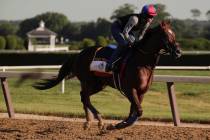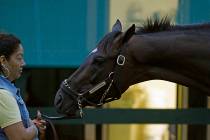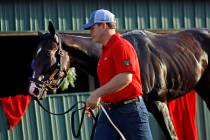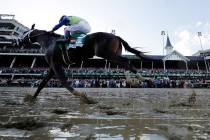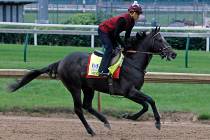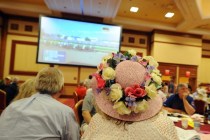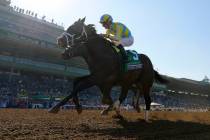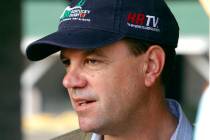Racetracks are getting greedy
I hate to be the bearer of bad tidings to local horseplayers. Last week, I heard these chilling words spoken before the National Council of Legislators from Gaming States, which was meeting at the Rio.
"We think Las Vegas casinos, and anyone else who is not supporting live racing for purses for the horsemen on the receiving end, need to be paying considerably higher than the 3 or 4 percent they are paying today."
This is from Scott Daruty, president and CEO of Tracknet Media, the new simulcast arm of Churchill Downs and Magna. It appears that Nevada casinos and other so called "secondary pari-mutuel outlets" (SPMO) may be asked to pay higher fees on Tracknet signals in the future.
When simulcasting began 25 years ago, Las Vegas casinos were charged 3 percent for the race signals. And the tracks were thrilled to get it.
The profit was considered found money because Las Vegas did not get any betting that was going to the tracks.
While the business of simulcasting has changed dramatically in 25 years because of technology, the host fees have not. However, to say the handle from Las Vegas race books does not contribute to the racing end is flat out wrong.
Also, from what I've learned observing the local race book industry for the past 10 years, if the tracks marketed horse racing one-tenth as well as the casino industry, horse racing would be much healthier.
I can click off the local companies -- Station Casinos, Coast Casinos, Boyd Gaming, MGM Mirage and numerous independent casinos -- that are spending millions of dollars improving the bricks and mortar of the race books and for additional promotion and marketing of racing.
I would guess that more newcomers are exposed to horse racing here than in any other state. In fact, the biggest compliment a racetrack operator can give to a new simulcast facility is "it's a Las Vegas-style race book."
My advice: Don't go killing the goose that is laying golden eggs for you.
Richard Eng's horse racing column is published Friday. He can be reached at rich_eng@hotmail.com.
RICHARD ENGMORE COLUMNS








